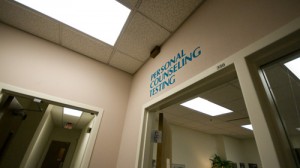
This past year, 30 percent of college students have been so depressed that they had difficulty functioning, 47 percent have experienced overwhelming anxiety, and 46 percent have felt things were hopeless, according to a survey of more than 50 schools by the American College Health Association.
Yet only 8 percent of St. Thomas undergraduate students visited the on-campus Personal Counseling center last year.
This is a serious problem. Students at St. Thomas struggle with depression, anxiety, eating disorders and other mental health disorders like students at other schools, so the numbers of students with these problems here should be comparable to other campuses.
Even more troubling, St. Thomas students who have these problems and don’t seek help are still paying for the center and the salaries of the counseling staff through their tuition, even if they don’t use the services. Eight percent of students may use the counseling center, but 100 percent of students pay for it.
So why are so few students seeking on-campus help, and what needs to happen to help students in need get counseling?
Stigmas must stop
Part of the problem is that St. Thomas students have mental illness stigmas. A common perception is that admitting to having a mental disorder is a sign of weakness. Asking for help means you’re a failure at dealing with stress or events in your life.
Personal Counseling Director Geraldine Rockett said there are widespread stigmas at St. Thomas about going for counseling.
“St. Thomas students are very independent go-getters who like to take care of their own problems,” Rockett said. “They aren’t like some people at other schools who think it’s cool to have your own shrink.”
But even fiercely independent people need help sometimes, and that’s why students need to throw away these stigmas. Stigmas prevent people from seeking treatment, and make mental health problems a forbidden topic, a dirty secret no one wants to admit to.
If mental health issues were talked about more openly, students would realize that going to a counseling center when they’re feeling depressed isn’t any different than going to the doctor when they sprain an ankle. Students shouldn’t make other students feel ashamed for seeking professional help, whether it’s from a physician or a psychiatrist.
Denial also keeps students from visiting the counseling center as often as they need to. Many students deny they need help, or feel their problem isn’t significant enough that they need counseling. But problems that seem relatively small can quickly spiral out of control, and students shouldn’t wait until their lives fall apart before talking with a therapist.
Counseling center needs stronger campus presence
Another way to encourage more students to seek mental health treatment would be to open up the counseling center itself. The Personal Counseling office is hidden away at the top of Murray-Herrick Campus Center and many students probably aren’t aware it exists.
Unfortunately, this won’t be changing anytime soon. The office will stay tucked away in its current location, out of heavily trafficked areas and out of students’ minds, even after the Anderson Student Center opens.
But counseling staff and university administrators should still work to increase the counseling center’s visibility on campus, even without a location change. Rockett said the average percentage of students who visit the counseling centers at schools demographically similar to St. Thomas is 10 percent. This means St. Thomas is below average, so spreading awareness about counseling services is important.
The counseling staff holds several events each year, such as depression screenings. But if students saw the therapists even more, whether as guest speakers in classes or talking with students in informal settings at different campus events, the therapists would seem more approachable and students would be more willing to visit them.
Rockett said the counseling staff used to discuss mental health issues during PHED 100 classes every semester, so all students heard of the counseling center. But because this requirement has been canceled, there are no widespread ways to tell students the benefits of counseling.
The university could start a zero-credit freshman seminar addressing mental health problems and other health and wellness issues. Freshmen could pick from the times offered and attend a seminar every few months. Instead of piling even more information on freshmen during orientation, this would be an effective way to remind them of mental health issues during their first year and make every student aware of the Counseling Center.
There aren’t any good reasons why students should sit in their rooms by themselves, struggling with complex emotional and mental issues, when they can receive competent, professional help on campus. If therapists and administrators make an even greater effort to tell students about these services, and if students let go of their stigmas, St. Thomas students’ mental health could considerably improve.
Katie Broadwell can be reached at klbroadwell@stthomas.edu.



Great article, Katie. I think those are some great ideas.
I agree 100% with this whole article. I think it would be a great idea to start some sort of requirement, no matter how small it would be, about mental health, as it seems to be an issue that is clearly overlooked, not just on campus, but in our entire society. By talking about it more openly, students would hopefully be able to feel more comfortable going to the Personal Counseling Center on campus.
This is a wonderful article Katie. I agree with you: I believe there are stigmas against mental illness everywhere, not just at St. Thomas, and I think these need to be addressed. I also agree that the Personal Counseling Center does not have as much advertisement as it should get. Students need to know that there is help out there for small and large mental health issues. Thanks for this good, informative editorial!